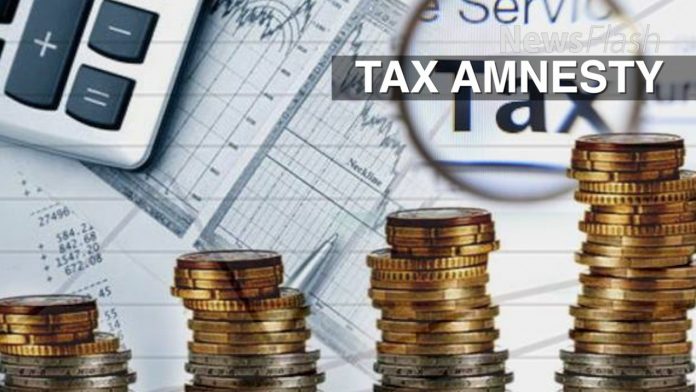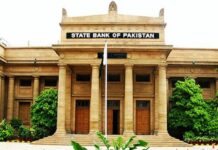
KARACHI: The recently announced tax amnesty scheme in April doesn’t seem to be fazing commercial banks as they have voiced reservations regarding it.
A report in Dawn on Monday said various senior bankers have expressed the tax amnesty scheme would have a robust percentage of ‘whitening’ of illicit money and prospect of foreign liquid inflows into bank accounts could cause a problem.
Several executives from major banks including their legal and compliance teams are confused if the transactions they are managing belong to people who have declared their foreign liquid assets under the tax amnesty scheme.
The confusion arises over whether they should ensure these transactions aren’t falling in the section of attempted money laundering.
In this regard, banks have asked the State Bank of Pakistan (SBP) for clarification. The SBP has made it clear all banks are bound to implement anti-money laundering rules and regulations.
Also, the SBP gives answers to all queries raised by the banks and issues explanation on every ambiguity regarding a given problem.
A senior central banker stated execution of the tax amnesty scheme was the responsibility of revenue authorities and the SBP would honour all its responsibilities which includes observing of anti-money laundering regulations.
The tax-amnesty scheme targets foreign assets and according to accounting firm AF Ferguson estimates at $150 billion (45% of our 2018 forecast GDP).
Through June 2018, residents can repatriate undeclared local liquid assets with a 5% penalty, undeclared foreign liquid assets with a 2% penalty (if repatriated, or a 5% penalty if remaining abroad or in foreign currencies), and undeclared fixed assets – whether held locally or abroad – with a 3% penalty.
The same rate would be applicable to those repatriated liquid assets which then get invested in government securities for the duration of five years or in upcoming dollar bonds.
According to the report, the above-mentioned is the carrot part of the scheme and the stick part of it would be unveiled after the coming of the caretaker setup which would be entirely different, said a head of a domestic bank.
He added the tax regulator could start scrutinizing people’s source of income who were availing this scheme and declaring only part of their undeclared foreign assets.
Furthermore, bankers are worried those banks managing these transactions of individuals availing the amnesty scheme could be pushed into long-drawn legal problems.






